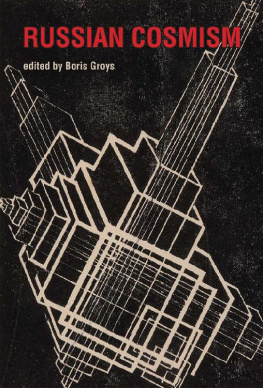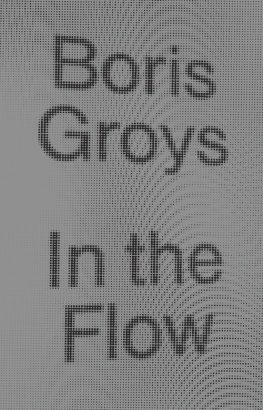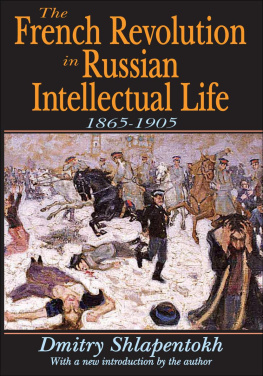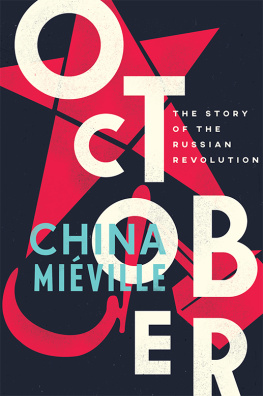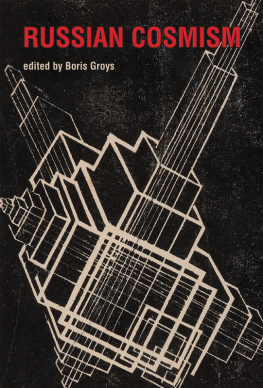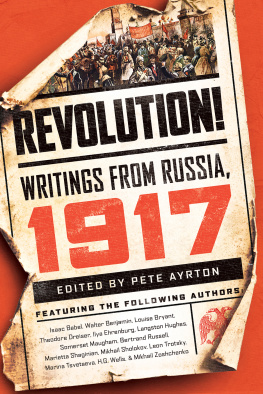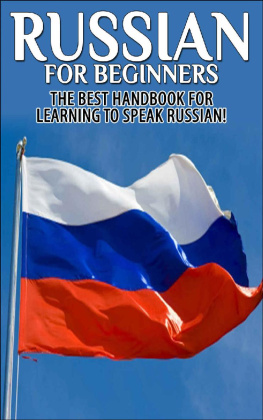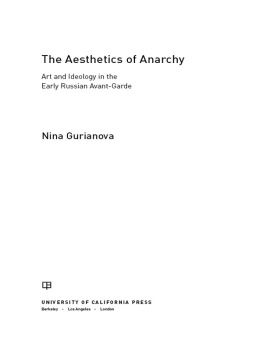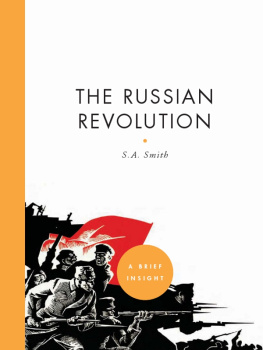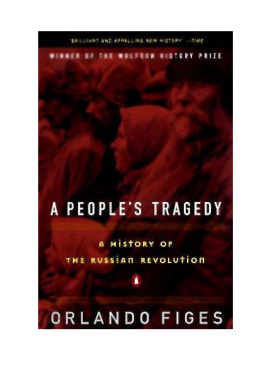Russian Cosmism
edited by Boris Groys
e-flux
New York, New York
The MIT Press
Cambridge, Massachusetts
London, England
2018 e-flux, Inc. and Massachusetts Institute of Technology
All rights reserved. No part of this book may be reproduced in any form by any electronic or mechanical means (including photocopying, recording, or information storage and retrieval) without permission in writing from the publisher.
In Biocosmist Poetics, six words of Antony Woods translation of Pushkins poem Domik v Kolomne appear with permission from Antony Wood. All rights reserved.
Every reasonable effort has been made to obtain permission to use the copyrighted material that appears in this volume. If any rights holder feels that copyrighted material has been used in error, please contact e-flux journal () and we will endeavor to rectify the situation in future editions of this book.
This book was set in ITC Stone Serif Std and Helvetica LT Std by Toppan Best-set Premedia Limited. Printed and bound in the United States of America.
Library of Congress Cataloging-in-Publication Data
Names: Gros, Boris, editor.
Title: Russian cosmism / edited by Boris Groys.
Description: Cambridge, MA : EFlux-MIT Press, 2018. | Includes
bibliographical references and index.
Identifiers: LCCN 2017023585 | ISBN 9780262037433 (hardcover : alk. paper)
eISBN 9780262344890
Subjects: LCSH: Philosophy, Russian. | Cosmology.
Classification: LCC B4231.R782018 | DDC 197dc23LC record available at https://lccn.loc.gov/2017023585
ePub Version 1.0
Table of Contents
List of Tables
List of Illustrations
Guide
Foreword
Walter Benjamin has a beautiful passage on Paul Klees Angelus Novus, the angel of history. For Benjamin, what the angel sees when looking backward is a pile of rubble: death, destruction, failure. Everyone dies; all projects fail; cities and civilizations fall into ruin. History is this graveyard: a genocide of people and their ideas. It is hard to argue with such a sublime spectacle of times destruction, and it often appears that only religion can explain human helplessness in the face of such power. In nineteenth-century Russia, however, a little-known philosopher named Nikolai Fedorov began to develop a very different view of history and the past. Fedorov believed that death is not natural, but more like a flaw in the design of the humansomething to be overcome by technological and scientific means, similar to the ways in which medicine seeks to cure disease. But while medicine seeks to cure afflictions in the living, a more sweeping approach is necessary to cure those afflicted with death itself.
First, death must be understood in a new way. Similar to understanding the soul as continuing to exist in spite of having left the body, we can understand death as a change in a humans material state. For Fedorov, our ethical obligation to use reason and knowledge to care for the sick extends to the curing of death: the dead must be brought back to lifenot as souls in heaven, but in material form, in this world, with all their memories and knowledge. From this point of view, history, the past, and the graveyard become a field full of amazing potential: nothing is finished and everyone and everything must continue. Fedorovs philosophy of the common task thus calls for a total reorientation of social relations, productive forces, economy, and politics toward the singular goal of achieving physical immortality and material resurrection. We cannot consider any person to be really dead and gone until we have exhausted every possibility for reviving him or her.
Fedorov was an Orthodox Christian writing just prior to the October Revolution, yet it appears he was deeply influenced by Western Enlightenment ideas. Following the revolution, the materialist, scientific, and futuristic emphasis of his philosophy became extremely appealing to a younger generation of revolutionary anarchist and Marxist thinkers who incorporated his ideas under their own brand of Biocosmism. The Biocosmists continued Fedorovs vision without its religious implications, while still advancing its technoscientific vision of immortality, resurrection for all, and freedom of travel in universal space.
Space travel was extremely significant for the Cosmist imaginary, and Fedorovs understanding of outer space is fascinating for being as religious as it is materialist: it is both the space of heaven and of the afterlife. The conquest of death would thus be achieved by living through the colonization of space and heaven as a singular unity. For Biocosmists, outer space would remain the territory of immortal life and infinite resources, especially considering that all resurrected generations of humans, animals, and all other previously living substance on Earth would quickly exceed the capacities of our planet. This created an immediate need to explore space travel, and it can be argued that these fantastic ideas of immortal life in cosmic space gave rise to the origins of the Soviet space program. Konstantin Tsiolkovsky, an early pioneer of Soviet rocket science, studied with Fedorov and similarly worked toward colonizing universal space to access a cosmic panpsychism.
Today, the imperial or expansionist undertones of space colonization make the utopian or metaphysical aims of the early Russian Cosmists stand in stark contrast to the brute resource-plunder of European territorial expansion. It can be said that even the US space program, while being technologically more advanced, remained a spiritually impoverished exercise trapped within the same colonial drive for territorial control in the absence of any significant cultural project. A question arises concerning how non-Western avant-gardes summoned technology to serve cultural practices or spiritual cosmologies beyond the steamroller of Western industrial modernity. The eccentricity of early Russian utopianism points to a universal materialism decidedly more humane and spiritually far more encompassing than the mechanistic functionalism or free expressionism of its Western artistic or architectural contemporaries.
In the Russian cultural field of the time, Cosmist ideas inspired a vast majority of the Soviet avant-garde, including visual artists, poets, filmmakers, theater directors, fiction authors, architects, composersnearly everyone who was engaged in the production of advanced culture. Biocosmists participated in the Proletkult (the largest cultural association formed in the Soviet Union after the revolution), published essays and manifestos in leading newspapers, and started their own journals and organizations in Moscow and Saint Petersburg. Many were publicly supportive of Leon Trotsky in his confrontation with Stalin, but this ended tragically with Stalins victory: the vast majority were jailed or sent to labor camps while others were repressed or executed. Starting in the early 1930s, expressing Cosmist ideas in any form became extremely dangerous. The space program, however, continued, largely for military purposes.
The writings in this volume represent different strains of Russian Cosmism and Biocosmism. Many have only recently been published in Russian for the first time since their suppression in the 1930s, and almost none have been translated or published in English. It is a great pleasure and an honor to make these works available to an international public.
Anton Vidokle and Brian Kuan Wood
Introduction: Russian Cosmism and the Technology of Immortality
Boris Groys
We have grown accustomed to understanding human beings as determined by the social milieu in which they live. Modernity taught us that we are organisms dependent on our environment, mere knots in networks of information. Globalization has only made us more self-conscious of our dependence on events taking place around the worldpolitically, economically, ecologically. But our planet is not an island in the galaxy. It depends on processes taking place in interstellar spacedark matter, waves and particles, stars exploding, and galaxies collapsing. The fate of humanity also depends on these cosmic processes because all of these cosmic waves and particles pass through human bodies. The survival of living organisms on the surface of the Earth depends on conditions determined by the position of the Earth within the cosmic whole.

